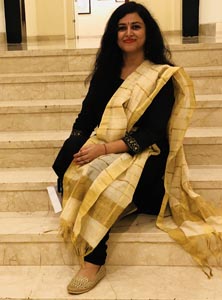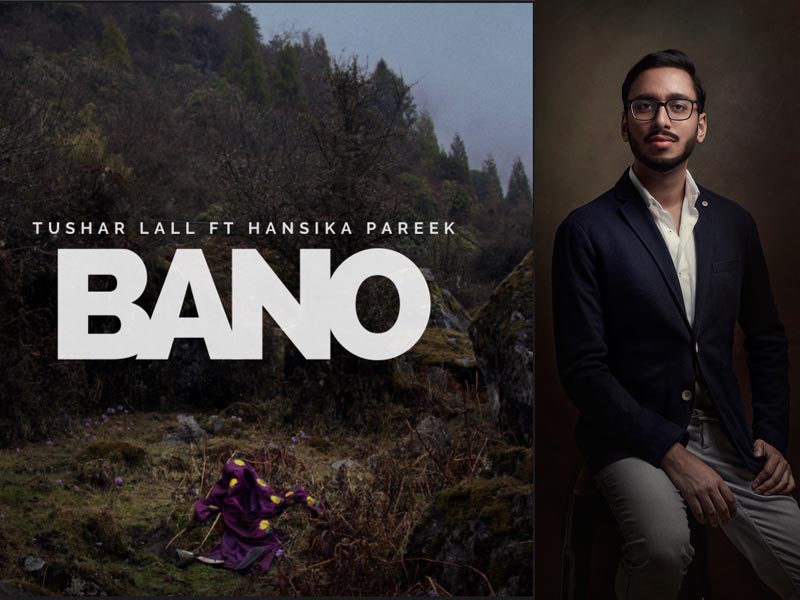Composer-arranger Tushar Lall’s first original, ‘Sifar’, released two years ago and it garnered love from music aficionados across the world. Now, he’s come up with his second original, ‘Bano’. Inspired by the case of eight-year-old Asifa Bano, who was abducted, raped and killed in 2018 (the Kathua rape case), ‘Bano’ is sung from her mother’s perspective.
Explaining how the song came about, Tushar says, “Nothing had affected me so much ever that it started translating into my art, before this one. Naturally, when you read something so sad, you don’t seek inspiration from it. It hits you. I read so many details of this case and they were so hard hitting that it started seeping into my music during that period. So, I composed this track three years ago, when the incident took place and I finished the composition only recently.”
The musician says that this was the first time that an incident inspired his music. “It’s a very upsetting story. I used to think that only music can inspire music. So, for a sad score, I needed to listen to something that’s really sad. But this case was so upsetting that it inspired me to make music. I know a lot of people who get inspired from films and incidents, but I’d never experienced that before,” says Tushar, who shot the music video in Sikkim.
Making the music video for ‘Bano’ was a challenging process, he says. “We wanted to showcase mountains and snow-capped peaks. The initial plan was to go up north, but those areas are very touristy. So we decided to go near the Indo-China border and it’s one of the prettiest places I’ve seen. It’s on a par with the scenic beauty of Switzerland. We were somewhere in the north of Lachung (Sikkim). It was really cold and we were so remote that getting food and water was a task. But because the area was so untouched, we got exactly what we wanted. We just focused on trailing the subject and being authentic about the environment that Asifa was in. It took us four days to shoot the video,” he says.
Composed and arranged by Tushar, the track had been sung by Hansika Pareek and penned by Tushar and his parents Mamta Srivastav and Raj Lall. Talking about that experience, Tushar says, “My parents have written the lyrics because I like to keep my publishing in-house. I believe that lyricists are creators and they are topmost in the hierarchy of importance when it comes to making a song. So, whenever I’m working with a lyricist, it’s very difficult for me to tell them that the thought is beautiful but the phrase is a little off, or anything else. I haven’t learnt to master that confrontation yet. My parents are great writers and they write in Hindi. They listen to the likes of Bashir Badr, Munawwar Rana saab and they keep talking about them. That’s the mahaul in my house. So, if they write the lyrics, I can always tell them exactly what I want and I can go through several rounds of revision with them.”
While the case shook everyone who read about it three years ago, Tushar composed it back then and it stayed with him all the while. Ask him if it haunted him, and he says, “It haunts me whenever I revisit the case. For instance, when I was doing my research for the video, I came across many disturbing set of images. In the video, I drew a lot of parallels from the real incident. I used the flute because it depicts the innocence of a child. I used the folk mourning voices because I saw an interview of Asifa’s mother, where she was sitting with a bunch of women and the voices I used in the song resembled theirs. So yes, it haunted me every time I visited Asifa’s ecosystem.”
 |
Ms. Soumya Vajpayee, Senior Entertainment & Lifestyle Journalist |


